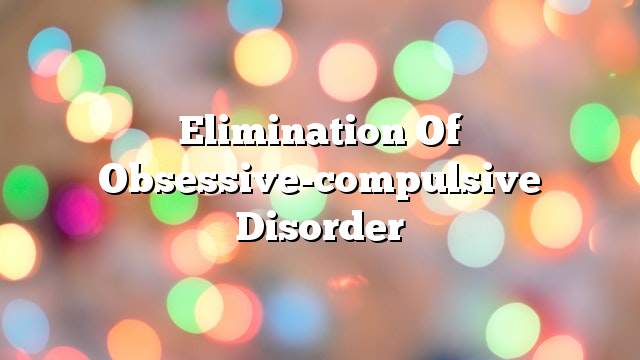Obsessive-compulsive disorder
Obsessive-Compulsive Disorder (OCD) means that a particular idea is controlled by the patient’s mind, and that it is related to him during his prayer, although he has carefully thought about it and made his decisions about it, but he does not leave his mind and is convinced that he should not think about it. Consecutive times, wash your hands constantly.
If you try to keep the idea out of their minds, and the disease prevents them from performing many of their life activities, some patients with obsessive-compulsive disorder (OCD) To harm themselves without any awareness of them.
Symptoms of obsessive-compulsive disorder
Obsessive-compulsive disorder usually occurs in childhood or adolescence, that is, before the age of 20, and affects both males and females by approximately the same percentage. And the diagnosis is delayed in most cases because patients do not know they are infected, and do not know what symptoms accompany the disease, which delays the diagnosis, and the development of complications, and their impact on the patient’s life and psychology, and the following are some of the symptoms associated with the obsession:
- Symptoms associated with obsessive thoughts: thoughts and doubts that a person constantly has, such as thoughts related to cleanliness, acquisition of the idea of collecting things, the consistency of clothes or furniture, acquisition of ideas of violence, religious ideas and many more.
- Symptoms associated with compulsive behaviors: These behaviors come when people with obsessive-compulsive disorder try to get rid of compulsive thoughts by doing different behaviors such as washing dishes repeatedly, checking things several times, and collecting things and other behaviors.
Treatment of obsessive-compulsive disorder
Many people do not know that obsessive-compulsive disorder is a real disease associated with chemical imbalances, which occur in the brain and may sometimes be hereditary. There is a disturbance in the connection between the front parts of the brain and the deeper parts that lose one’s ability to control the start and stop of thoughts .
The use of neurotransmitter serotonin in this connection is lower in these patients, so it must be upgraded to get rid of this disease, and to be effective and useful treatment must be followed several things, including:
- Recognize the person’s illness and speak with the doctors responsible for correctly diagnosing it.
- The patient undergoes psychological behavioral treatment to get rid of this disease.
To learn more about obsessive-compulsive disorder and how to cure it, watch the video.
